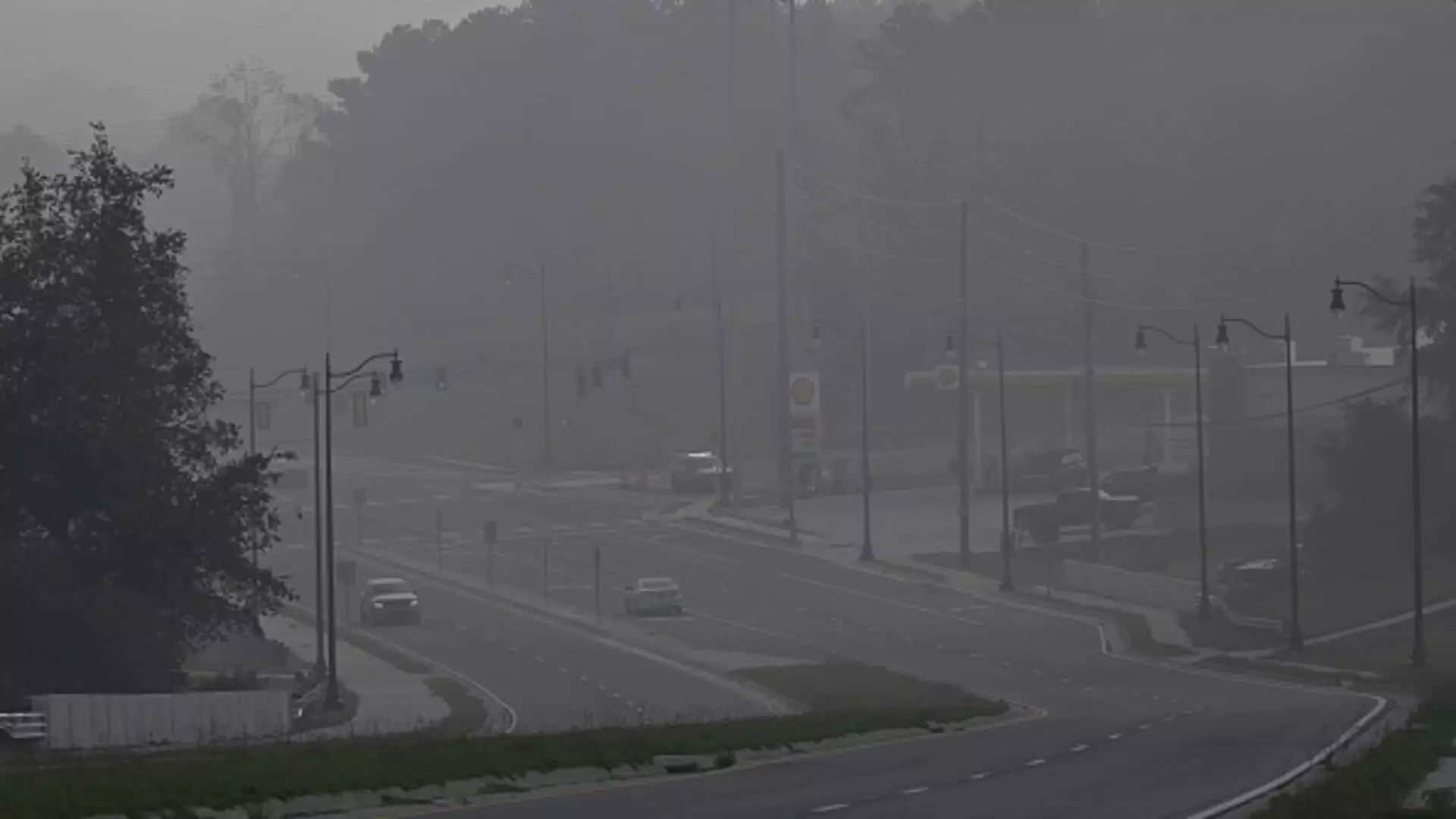Atlanta faces an alarming environmental crisis stemming from a fire at a chemical lab in Conyers, Georgia. Initiated early Sunday morning, this incident has reverberated through the community, leading to heightened health concerns due to the possible release of chlorine gas into the atmosphere. As the Georgia Emergency Management and Homeland Security Agency (GEMHSA) reported, air quality monitors detected worrisome levels of chlorine around the BioLab facility, sparking warnings from officials.
This situation grew more complex as local authorities grappled with the implications of the fire and the resulting air quality issues. Elevated chlorine levels prompted immediate action, including shelter-in-place recommendations for Conyers and mandatory evacuations for those within close proximity to the plant. The looming threat of harmful chemical exposure has sparked widespread anxiety among residents, challenging not just their health, but also their sense of safety.
The release of chlorine gas from the BioLab facility poses multiple health risks, especially for vulnerable populations. While officials reassured the public that normal air quality levels would likely return soon, the reality remains—smoke containing chlorine can irritate the eyes, respiratory system, and overall well-being of individuals. Those with pre-existing health conditions face the greatest dangers, as chest pain, shortness of breath, and fatigue are common complaints that could escalate quickly in environments with elevated toxic gas concentrations.
The situation escalated as individuals began reporting distressing symptoms, casting doubts on the effectiveness of public safety advisories. Thomas Chastain, a local worker with firsthand experience of these adverse effects, articulated the frustrations of many in the community. He noted the conflicting messages from authorities: one moment assuring residents of safety, and the next raising alarms, creating an environment rife with confusion and mistrust.
Public Reaction and Social Media Buzz
As news of the situation unfolded, social media became the platform for residents to voice their frustrations and seek clarity. Describing their experiences, people expressed anger and alarm over the inconsistent communication from local officials, which has prompted community members to call for the removal of the BioLab facility. Statements capturing their distress, like “Driving through that mess BURNS and working right here has me feeling like I’m gonna develop a third eye pretty soon,” paint a vivid picture of the fear permeating Rockdale County.
Community members are understandably restless, unsure of whether to feel reassured by official statements or alarmed by the physical evidence of smoke and odor in their neighborhoods. The disparities between localized experiences and governmental assessments of air safety have added to the growing unease among residents.
This incident underscores an urgent call for clarity, cooperation, and change within the local government’s response system. Effective communication is paramount in instilling confidence among residents who worry for their health and that of their loved ones. An incident of this magnitude unveils the pressing need for transparency in crisis management as community action grows louder in advocating for better safety regulations surrounding chemical facilities.
While the authorities have stated that chlorine levels are expected to return to safe thresholds, the struggles faced by the community highlight the broader issue: the balance between industrial functionality and population safety. The growing agitation for accountability and preventive measures against future incidents echoes a larger theme of sustainability and public health.
The incident in Conyers serves as a stark reminder of the vulnerabilities communities face when industrial processes intersect with residential life. As locals rally for the re-evaluation of BioLab’s presence, this incident could catalyze significant changes in both policy and community engagement, reinforcing the importance of prioritizing public health above all else in industrial operations.

Leave a Reply